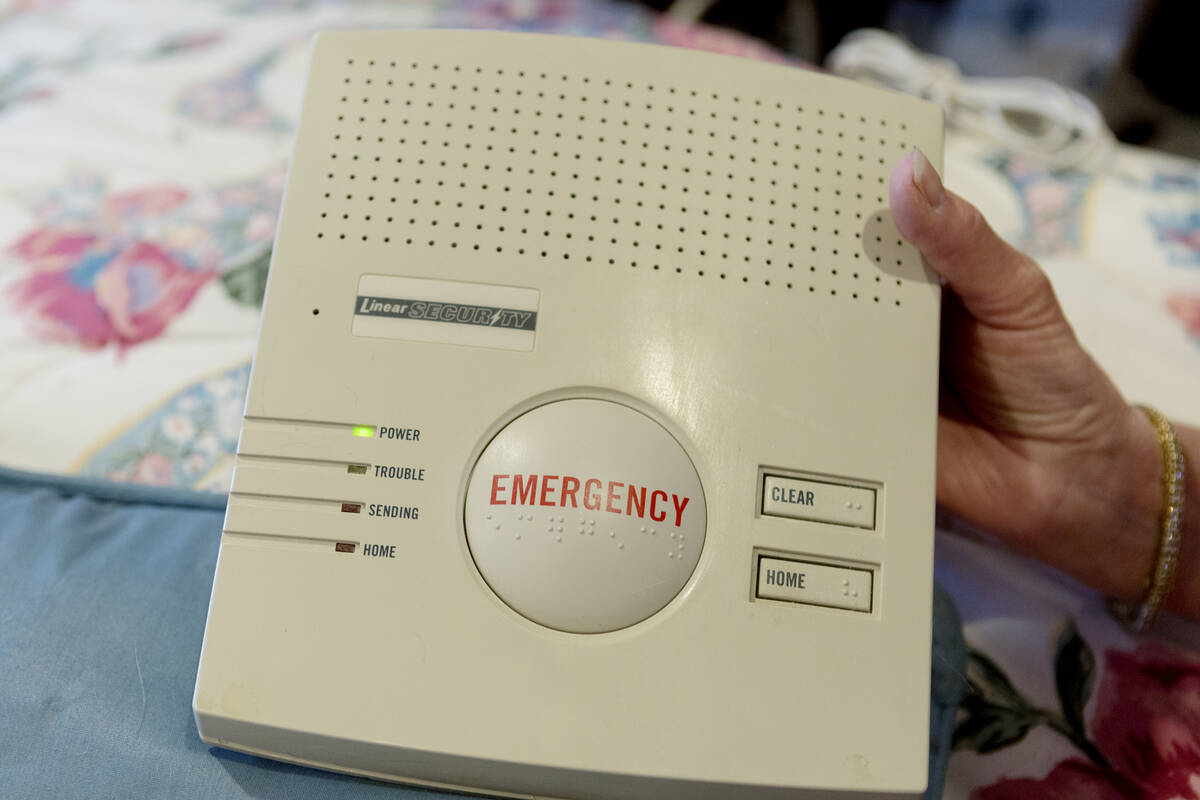Savvy Senior: Medical alert devices without having to wear a button
Dear Savvy Senior: Are there any monitored medical alert devices that don’t require pushing a wearable help button? My 82-year-old father, who lives alone, has fallen twice during the past year but doesn’t like wearing an SOS pendant button. — Searching Daughter
Dear Searching Daughter: Yes, there are several monitored medical alert systems and other technologies that have voice-activated capabilities that let seniors call for help using commands, without pushing a wearable help button.
These new technologies are very helpful for seniors who prefer not to wear a help button, or perhaps forget to, as well as for those who have physical challenges that make using a help button difficult.
If he speaks the “wake words,” these devices will connect your dad to a trained dispatcher at a 24/7 monitoring center who will find out what the problem is and send help for him.
All of these technologies also offer family/caregiver smartphone apps that will help you keep tabs on your dad from afar and notify you if a problem occurs.
Hands-free medical alerts
Some of the best voice-focused medical alert systems are GetSafe, Aloe Care Health and HandsFree Health.
Rated by U.S. News & World Report as the No. 1 medical alert system for 2023, GetSafe (GetSafe.com) comes with a cellular base console, voice-activated and push wall buttons, an optional personal help button and fall-detection sensors. To call for help, your dad would simply say “Call 911” twice, and he would be connected to GetSafe’s 24/7 monitoring service. Prices for GetSafe start at $79, plus a $30 monthly monitoring fee.
Another highly rated system is Aloe Care Health (AloeCare.com), which comes with a voice-activated Smart Hub and optional wearable help button with fall-detection capabilities. This system would connect your dad to the Aloe Care 24/7 monitoring center by simply saying “Emergency” repeatedly until connected. It can also make voice-command nonemergency calls to preassigned contacts. Prices start at $150, plus a monthly fee of $30.
The WellBe by HandsFree Health (HandsFreeHealth.com) comes with the WellBe Medical Alert Speaker that would let your dad call for help by saying “OK WellBe Call Emergency.” WellBe also offers hands-free calling and messaging to contacts, will answer health questions and will provide reminders for medications and doctor appointments. It also offers a medical alert watch and pendant (sold separately) with fall-detection capabilities. WellBe starts at $100, plus $20 a month.
Smart-home solution
Instead of a traditional medical alert system, another terrific hands-free way to call for help is to get your dad an Amazon Echo device ($50 to $250) and sign him up for Alexa Together. This is remote caregiving service that will turn his Echo into a medical alert system. To get help, your dad would say “Alexa, call for help” to be connected to its 24/7 Urgent Response center.
Alexa Together, which costs $20 a month, also works with compatible third-party fall detection devices such as Vayyar and AltumView. If a fall is detected, Alexa can ask your dad if he needs help, then connect him to the Urgent Response line and alert his emergency contacts.
Amazon Echo devices also provide a bevy of other features your dad may find useful. For example, Echo’s will let your dad make hands-free calls, receive reminders, set timers and alarms, control smart-home devices and much more.
Send your senior questions to: Savvy Senior, P.O. Box 5443, Norman, OK 73070, or visit SavvySenior.org.

















